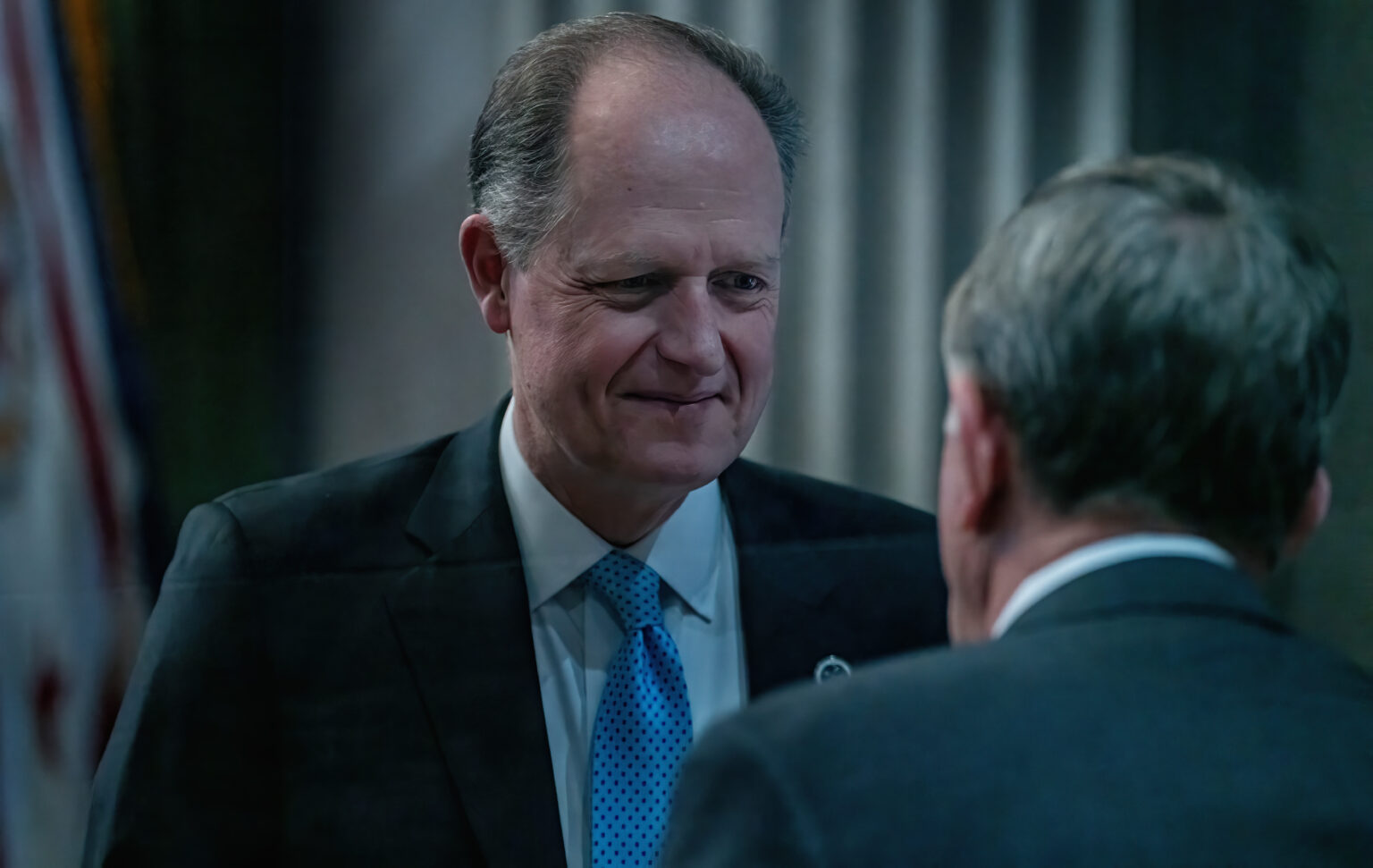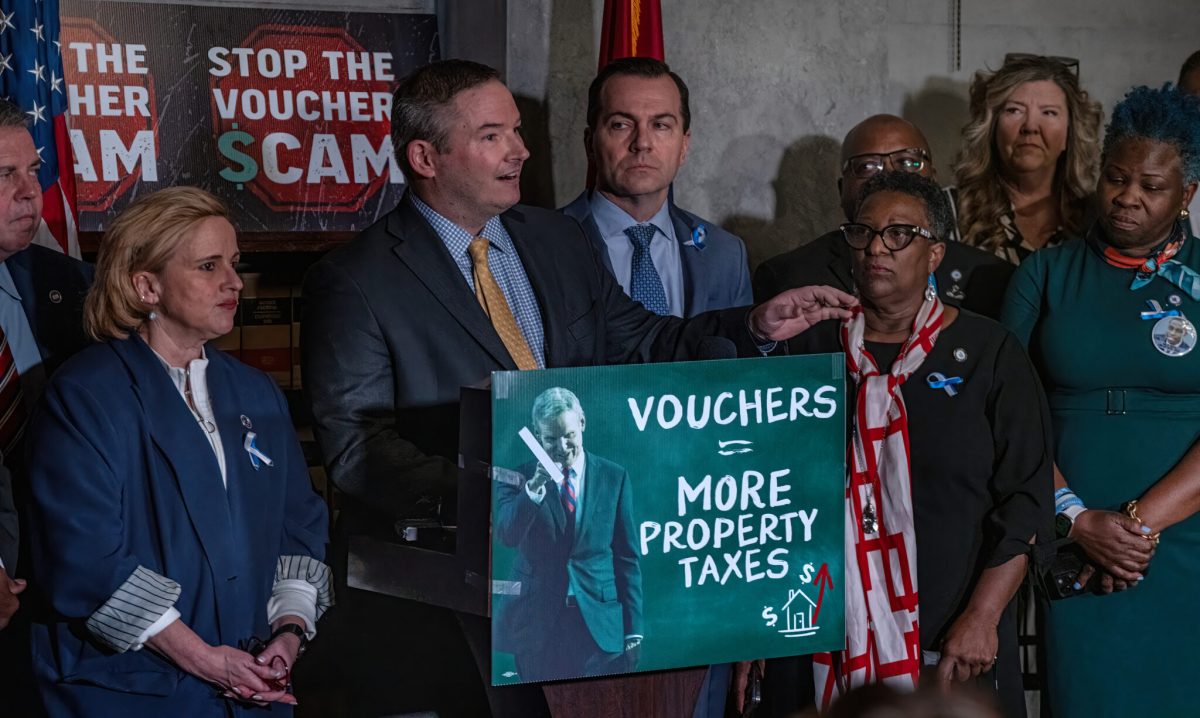Tennessee House and Senate education committees passed the governor’s private-school voucher program Tuesday, speeding the $450 million first-year expense to final votes before week’s end.
Senators voted 8-1 to send the measure to the finance committee to be considered Wednesday.
Senate Majority Leader Jack Johnson (R-Franklin), carrying the bill for Gov. Bill Lee, told lawmakers the plan will “empower families to do something for their kid, fulfilling needs we’re not meeting with this public school system that we run together with our local folks.”
Johnson claimed a mandate to pass the measure from President Donald Trump, who posted on his Truth Social platform earlier that he supports Tennessee lawmakers’ efforts to adopt “school choice.”

“It is our goal to bring education in the United States to the highest level, one that it has never attained before,” Trump said in his post.
Lee’s plan, which is zooming toward final votes in a special session this week, calls for providing more than $7,000 each to 20,000 students statewide and then expanding by about 5,000 annually. Half of those students in the first year could come from families with incomes at 300 percent of the federal poverty level, an estimated $175,000 for a family of four, while the rest would have no income limit. No maximum income would be placed on the program after the first year.
A financial analysis by the state’s Fiscal Review Committee determined K-12 schools will lose $45 million and that only $3.3 million would go toward 12 school districts most likely to lose students.
Senate Minority Leader Raumesh Akbari (D-Memphis) was the lone vote against the bill as she urged the committee to “exercise a bit more caution.” Akbari reminded senators that students participating in the state’s education savings account program, which provides vouchers to enroll in private schools in Davidson, Hamilton, and Shelby counties, are performing worse academically than their peers.
In contrast, Sen. Adam Lowe (R-Calhoun) said standardized tests shouldn’t be the deciding factor in passing the bill. Lowe also told Hawkins County Schools Director Matt Hixson he shouldn’t be worried about talk that some local leaders in upper East Tennessee believe they have to support the voucher bill or the legislature could refuse to approve $420 million for Hurricane Helene disaster relief.
The House panel endorsed the plan on a 17-7 vote after Republican lawmakers used a procedural move to bypass debate on the bill. Rep. Jake McCalmon (R-Williamson County) called for an immediate vote following public testimony, backed by Rep. William Slater (R-Sumner County). The move kept opponents from questioning the bill’s sponsor, House Majority Leader William Lamberth (R-Portland).
Rep. Gloria Johnson (D-Knoxville) called the move “ridiculous” afterward because of the impact the bill could have on public schools and the state’s budget.
In addition to complaining that the state will be running two school systems and likely hitting financial problems, Johnson challenged Lamberth’s assertion that the bill will make public schools “whole” when they lose students to the private-school voucher program.
Lamberth, though, said public schools would not lose “one red cent” as a result of the program.
Tennessee Lookout is part of States Newsroom, a nonprofit news network supported by grants and a coalition of donors as a 501c(3) public charity. Tennessee Lookout maintains editorial independence. Contact Editor Holly McCall for questions: info@tennesseelookout.com.

